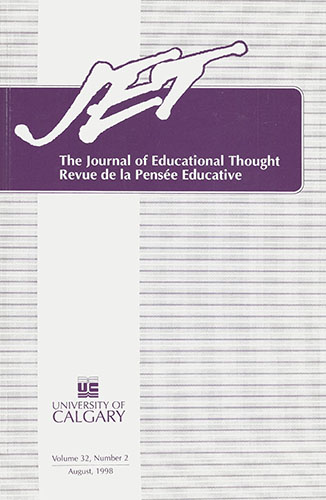Knowledge, Dialogue, and Humanization: The Moral Philosophy of Paulo Freire
DOI:
https://doi.org/10.55016/ojs/jet.v32i2.52518Abstract
Paulo Freire has been one of the most influential educationists of the 20th century. While many theorists in recent years have focused on the application of Freirean ideas, this paper concentrates on the philosophy which lies behind Freire's practice. The author considers the metaphysical, ontological, epistemological, and ethical dimensions to Freire's thought. A number of key moral principles in Freire's work are identified. The paper suggests that Freire's moral philosophy is built on a dialectical approach toward the world, a praxical view of knowledge and the human ideal, and a deep commitment to the liberation of the oppressed.
Downloads
Downloads
Published
Issue
Section
License
The Journal of Educational Thought retains first publication rights for all articles. The Journal grants reproduction rights for noncommercial educational purposes with the provision that full acknowledgement of the work’s source be noted on each copy. The Journal will redirect to the appropriate authors any inquiries for further commercial publication of individual articles. All authors wishing to publish in JET will be asked to fill in and sign a Consent to Publish and Transfer of Copyright agreement.
Authors must affirm that any submission to JET has not been and will not be published or submitted elsewhere while under considration by JET.

